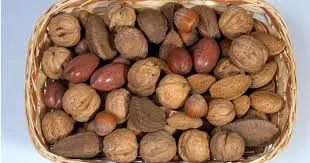-
 Afrikaans
Afrikaans -
 Albanian
Albanian -
 Amharic
Amharic -
 Arabic
Arabic -
 Armenian
Armenian -
 Azerbaijani
Azerbaijani -
 Basque
Basque -
 Belarusian
Belarusian -
 Bengali
Bengali -
 Bosnian
Bosnian -
 Bulgarian
Bulgarian -
 Catalan
Catalan -
 Cebuano
Cebuano -
 Corsican
Corsican -
 Croatian
Croatian -
 Czech
Czech -
 Danish
Danish -
 Dutch
Dutch -
 English
English -
 Esperanto
Esperanto -
 Estonian
Estonian -
 Finnish
Finnish -
 French
French -
 Frisian
Frisian -
 Galician
Galician -
 Georgian
Georgian -
 German
German -
 Greek
Greek -
 Gujarati
Gujarati -
 Haitian Creole
Haitian Creole -
 hausa
hausa -
 hawaiian
hawaiian -
 Hebrew
Hebrew -
 Hindi
Hindi -
 Miao
Miao -
 Hungarian
Hungarian -
 Icelandic
Icelandic -
 igbo
igbo -
 Indonesian
Indonesian -
 irish
irish -
 Italian
Italian -
 Japanese
Japanese -
 Javanese
Javanese -
 Kannada
Kannada -
 kazakh
kazakh -
 Khmer
Khmer -
 Rwandese
Rwandese -
 Korean
Korean -
 Kurdish
Kurdish -
 Kyrgyz
Kyrgyz -
 Lao
Lao -
 Latin
Latin -
 Latvian
Latvian -
 Lithuanian
Lithuanian -
 Luxembourgish
Luxembourgish -
 Macedonian
Macedonian -
 Malgashi
Malgashi -
 Malay
Malay -
 Malayalam
Malayalam -
 Maltese
Maltese -
 Maori
Maori -
 Marathi
Marathi -
 Mongolian
Mongolian -
 Myanmar
Myanmar -
 Nepali
Nepali -
 Norwegian
Norwegian -
 Norwegian
Norwegian -
 Occitan
Occitan -
 Pashto
Pashto -
 Persian
Persian -
 Polish
Polish -
 Portuguese
Portuguese -
 Punjabi
Punjabi -
 Romanian
Romanian -
 Russian
Russian -
 Samoan
Samoan -
 Scottish Gaelic
Scottish Gaelic -
 Serbian
Serbian -
 Sesotho
Sesotho -
 Shona
Shona -
 Sindhi
Sindhi -
 Sinhala
Sinhala -
 Slovak
Slovak -
 Slovenian
Slovenian -
 Somali
Somali -
 Spanish
Spanish -
 Sundanese
Sundanese -
 Swahili
Swahili -
 Swedish
Swedish -
 Tagalog
Tagalog -
 Tajik
Tajik -
 Tamil
Tamil -
 Tatar
Tatar -
 Telugu
Telugu -
 Thai
Thai -
 Turkish
Turkish -
 Turkmen
Turkmen -
 Ukrainian
Ukrainian -
 Urdu
Urdu -
 Uighur
Uighur -
 Uzbek
Uzbek -
 Vietnamese
Vietnamese -
 Welsh
Welsh -
 Bantu
Bantu -
 Yiddish
Yiddish -
 Yoruba
Yoruba -
 Zulu
Zulu
Aug . 07, 2024 17:30 Back to list
The Ultimate Guide to Choosing the Finest Sunflower Seeds for Your Feathered Friends
The Best Sunflower Seeds for Birds A Guide for Enthusiasts
When it comes to attracting beautiful birds to your backyard, nothing compares to the allure of sunflower seeds. Renowned for their high nutritional value and energy-boosting properties, sunflower seeds are a favorite among various bird species. Whether you are a novice birdwatcher or a seasoned ornithologist, understanding which sunflower seeds to offer can elevate your bird feeding experience.
Types of Sunflower Seeds
The two main types of sunflower seeds popularized for bird feeding are the black oil sunflower seeds and striped sunflower seeds.
1. Black Oil Sunflower Seeds These seeds are the top choice for bird enthusiasts. Their thin shells make them easy for birds to crack open, while their high oil content provides excellent energy, especially essential during migration seasons. Species such as cardinals, chickadees, finches, and nuthatches are particularly attracted to these seeds. Furthermore, the black oil sunflower variety is quite versatile, as it can be offered in feeders or scattered directly on the ground.
2. Striped Sunflower Seeds While not as favored as their black-oil counterparts, striped sunflower seeds still attract a variety of birds, including larger species like blue jays and woodpeckers. Their thicker shells require more effort to crack, which might deter smaller, less strong-billed birds. However, when mixed with other seed types, they can enhance the diversity of bird visitors to your yard.
Choosing Quality Seeds
When selecting sunflower seeds, quality is key. Always opt for fresh seeds from reputable brands. Avoid those that have an off smell or look discolored, as these could be stale or contaminated. Additionally, seeds sold in bulk may pose a risk of mold or other spoilage. Check packaging for the harvest date and look for signs of pests or infestation.
best sunflower seeds for birds

Feeders for Sunflower Seeds
Utilizing the right feeder can significantly impact your birdwatching experience. Tube feeders are an excellent choice for black oil sunflower seeds because they allow birds to perch and feed while keeping seeds dry and clean. Hopper feeders also work well for attracting a variety of birds and can hold a larger quantity of seeds. For striped sunflower seeds, platform feeders are ideal, offering plenty of space for larger birds to land and eat comfortably.
Feeding Tips
1. Location Matters Place your feeders in areas where birds feel safe, away from predators and disturbances. Near trees and shrubs provides cover, making your yard more inviting.
2. Regular Maintenance Keep feeders clean and refill them regularly to ensure birds always have access to fresh seeds. Cleaning prevents disease and unwanted pests.
3. Mix It Up Although sunflower seeds are a favorite, consider offering a variety of seeds to attract different bird species. A mix with millet, safflower, and peanuts can broaden your visitor list.
4. Seasonal Feeding Different seasons can influence bird feeding behavior. During winter months, high-fat sunflower seeds are crucial for energy, while spring may see an increase in demand for nesting material alongside seeds.
In conclusion, providing sunflower seeds for birds is an enriching venture that can enhance your backyard experience. By choosing high-quality black oil sunflower seeds, employing appropriate feeding strategies, and ensuring regular maintenance of feeding stations, you can enjoy a vibrant ecosystem brimming with avian visitors. Whether for the joy of watching them feed or the satisfaction of supporting local wildlife, sunflower seeds serve as a simple yet effective means to connect with nature. So, gear up, and invite the beauty of birds into your world!
-
Buy Bulk Sunflower Seeds Exporter: Premium Quality, Competitive Price
NewsJul.30,2025
-
Premium Macadamia Nuts - Fresh, Crunchy & Healthy Snack Choice
NewsJul.30,2025
-
Premium Biscuits Packaging – Elegant, Durable & Customizable Solutions
NewsJul.29,2025
-
Top Banana Flavor Sunflower Seeds Exporter - Factory Direct Supply
NewsJul.29,2025
-
Premium Snack Dates - Healthy, Natural & Delicious Treats
NewsJul.29,2025
-
Premium Peanuts - Fresh, Nutritious & Delicious Snacks for All
NewsJul.28,2025
